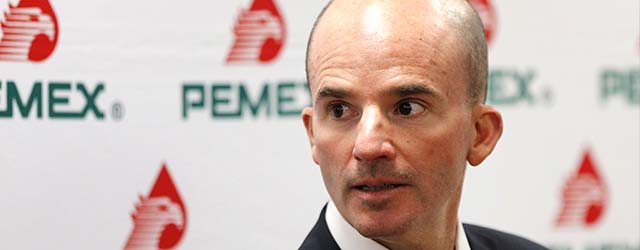Mexico’s giant state oil company Pemex has a new boss, González Anaya, and he’s got a mess on his hands.

Pemex lost about $30 billion in 2015. Production continues to slump; its six refineries operate at low capacity. Financial constraints and inadequate investment could reduce output even more in 2016, even as the weakening peso and low oil price environment ramp up pressure on the company to perform and grow.
González Anaya’s turnaround strategy depends on significant austerity measures, including $5.5 billion in proposed budget cuts and the upcoming auction of deep-water oil blocks that will, in effect, outsource part of the company’s production process.
Pemex’s new leadership and its ongoing privatization are part of a larger energy reform push in Mexico. The current Mexican administration has also initiated telecom reforms and other structural changes to boost efficiency and competitiveness in the Mexican economy—which is becoming one of the most open in the world, with 44 international trade agreements.
Reforms in the electricity sector have already shown success. Affordable, efficient electricity in Mexico is crucial, not only to its rising middle class but to the nation’s status as an up-and-coming global manufacturing powerhouse.
“An important concern for international industrial companies interested in Mexico was the high price of power relative to other manufacturing economies,” says Alejandro Ramos, executive director of the US-Mexico Chamber of Commerce Northeast. “We already see a decrease in the cost of electricity as a result of … energy reform.”
Mexico’s challenged macroeconomic environment and debt-ridden energy companies have pushed the government to react quickly to ensure the success of its new regulatory and economic policies.
“Besides the adverse environment caused by low oil prices,” says Ramos, “the attraction of domestic and foreign investment to the oil sector has been positive due to the openness of the Mexican government” to adapting the terms of the bidding processes to the current, adverse market conditions.
The future of Pemex’s new CEO depends on the government’s ability to stay in power and implement its reforms.



